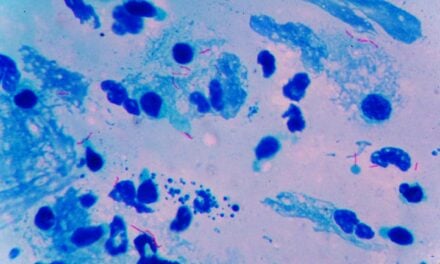Summary: QIAGEN supports the American Academy of Pediatrics (AAP) new guidelines recommending the screening of at-risk children of all ages for latent tuberculosis using advanced blood-based tests.
Takeaways:
- Expanded Screening Guidelines: The AAP’s revised guidelines now advocate for TB screening in children of all ages, including infants, using interferon-gamma release assays (IGRAs), which marks a significant shift from previous recommendations that had age limitations.
- Superior Diagnostic Tool: QIAGEN’s QuantiFERON-TB Gold Plus is highlighted as an IGRA that offers an accurate and efficient alternative to the traditional tuberculin skin test, especially beneficial in children who have received BCG vaccination or may not return for skin test interpretation.
- Growing Recognition and Adoption: The endorsement of IGRA by health bodies like the AAP and ACHA, along with QIAGEN’s educational partnership with the International Panel Physicians Association, reflects a broader shift towards modern, effective TB screening methods in both domestic and global public health strategies.
QIAGEN announced that it welcomes new U.S. guidelines from the American Academy of Pediatrics (AAP) that recommend screening at-risk children of all ages for latent tuberculosis (TB) infection with modern blood-based tests, such as QIAGEN’s QuantiFERON-TB Gold Plus (QFT-Plus).
Pediatric Testing for Tuberculosis
The new guidelines from the AAP emphasize testing for TB with modern interferon-gamma release assays (IGRAs). The new standards were published in the academy’s Red Book: 2024–2027 Report of the Committee on Infectious Diseases.
The new TB screening guidelines expand on the organization’s previous IGRA recommendations and now cover children of all ages, including infants and children age 2 and under.
Up to 13 million people in the U.S. are estimated to have latent TB infections, and children are at increased risk for progression from infection to contagious active TB disease. Children are also commonly exposed to settings with a higher risk for TB transmission, such as schools and childcare centers.
New Recommendations from the American Academy of Pediatrics
The AAP’s recommendations follow recently updated guidelines from the American College Health Association (ACHA) stating that IGRAs are preferred over the 120-year-old tuberculin skin test (TST) for most situations relevant to college health.
“I am pleased to see the American Academy of Pediatrics removing any age threshold for the use of IGRAs,” says Lindsay Cameron, MD, MPH, an AAP member, pediatric infectious disease physician and pediatrician in Houston, Texas. “The new guidelines resonate with the growing recognition by TB control experts of the value of using the most accurate diagnostic tests available. As part of our comprehensive efforts to eradicate this life-threatening disease, latent TB infection can be detected in at-risk children and adolescents and treated to prevent progression into active and contagious TB disease.”
The updated childhood TB screening guidelines come as U.S. authorities are expanding the role of latent TB screening in national tuberculosis control efforts.
QIAGEN recently announced a partnership with the International Panel Physicians Association (IPPA) to support and educate panel physicians around the globe on new US CDC tuberculosis screening guidelines that require the use of IGRA tests to ensure a safe immigration process and support the global fight against TB.
About TB
Tuberculosis is a contagious bacterial infection spread primarily through coughing by patients with the active pulmonary form of the disease. One in four people worldwide are believed to have latent TB infections, with 5-10% of them expected at some point to progress to active TB disease. Screening for latent TB infection is therefore essential in the effort to end TB.
According to the CDC, active TB cases in the U.S. increased 16% in 2023, the highest number of cases since 2012, highlighting the need for increased disease surveillance and testing. TB cases have been rising post-COVID-19 as public health authorities and primary care providers catch up to the “surveillance gap” caused by the COVID pandemic.
QIAGEN’s TB Blood Test
QuantiFERON-TB Gold Plus is an IGRA blood test, with millions of tests performed annually. It is established as an alternative to the dated TB skin test (TST), which is less effective in identifying TB infection in people who have received BCG vaccination, which is common for patients from high-TB-burden countries, and in patients who may be unlikely to return for TST interpretation, QIAGEN says.
QuantiFERON-TB Gold Plus has helped patients and providers globally by reducing the number of visits to a single blood draw with a faster turnaround time. Roughly 70–80 million TB skin tests are performed each year globally, including 16–18 million in the U.S., with healthcare providers increasingly switching to modern IGRA tests, the company says.





